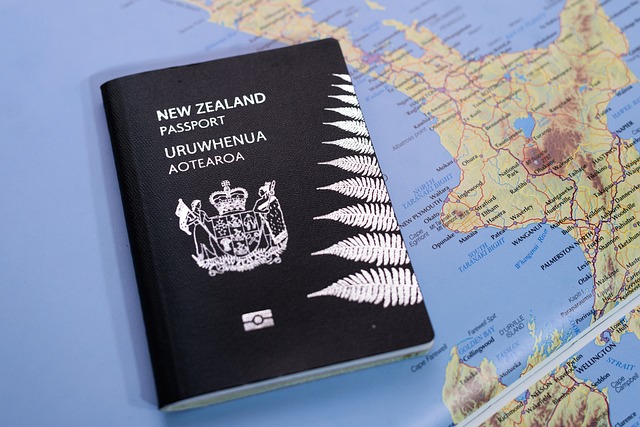Contact us :+91-70 335 335 70
- Monday - Saturday 10:00 am - 07:00 pm
- Third Floor, Plot No. 55, Sector 12-B, Dwarka, New Delhi, 110075



Two-thirds of the population of the Northern Isle of New Zealand lives there, with the majority residing in Auckland. The most populous and multicultural centre, Auckland is home to substantial Polynesian and Asian communities. The area is renowned for its more temperate topography and breathtaking scenery, exemplified by Northland with its picturesque sandy shores and subtropical atmosphere. Located south of Auckland, the central Northern Isle is home to Mount Ruapehu and Tongariro National Park alpine terrains
At the southernmost point of the Northern Isle is the capital metropolis of New Zealand, Wellington. It is home to numerous cultural institutions, including the New Zealand Harmony Orchestra, the National Opera, the Imperial New Zealand Ballet, and the Te Papa gallery, despite being smaller and less commercially dominant than Auckland. In addition to its reputation for cuisine, coffee, and retail, Wellington is a centre for film, music, and the fine arts.
Online narratives frequently highlight the Southern Isle on account of its awe-inspiring landscapes and exhilarating activities. On the contrary, the Southern Isle possesses a more tranquil atmosphere as a result of its restricted population, providing sufficient space for all and a relaxed way of life. The principal centres for those in search of a more social experience are Nelson, Dunedin, Christchurch, and Queenstown, despite the apparent isolation of certain regions.
The Southern Isle’s way of life is characterised by an emphasis on outdoor pursuits, pleasurable diversions, delectable cuisine, and outstanding wine. Following a long day of ocean canoeing or exploration, or an evening spent appreciating museums, galleries, or vineyards, fish and chips are available to tourists on the jetty. Whether one wants a more quiet environment or a vibrant night out, there is plenty for everyone.
Students’ cost of living in New Zealand differs based on their region and expenditure pattern. For students living in New Zealand, lodging, food, and transport are major outlays of funds. Usually, a student’s monthly spending falls between $20,000 and $25,000. New Zealand’s lodging rates differ based on the city from $700 and $1,900 every month. Food bills may go between $80 to $120 every week. With bus fares that range from $4 to $11, public transport is a somewhat affordable means of moving about. Working part-time and with a typical hourly pay of $18.90 allows students to additionally help with their costs. New Zealand is regarded as a rich but reasonably priced nation for students overall.
Spring
September to November
Daily Average temperature: 16 to 19˚C (61 to 66˚F).
Winter:
December until February
Daily Average Temperature: 20 to 25˚C (68 – 77˚F)
Autumn:
March till May
Daily average temperature: 17 to 21˚C (62 to 70˚F)
Cold:
June to August
Daily Average temperature: 12 to 16˚C (53 to 61˚F).
Educating students at all stages, New Zealand boasts an internationally renowned educational system with first-rate teaching quality and creative approaches. From preschool through university, the focus is on building analytical abilities, imaginative thinking, and problem-solving ability. By providing a logical and uniform approach of appreciating the value and quality of degrees, the New Zealand Degrees Framework (NZQF) guarantees worldwide respect.Ten levels, from advanced doctoral degrees to the National Certificate of Educational Achievement (NCEA) at secondary schools, comprise the system. This system helps both domestic and foreign students to reach their career and academic targets.
With eight state-funded universities, many Institutes of Technology and Polytechnics (ITPs) consolidated under Te Pūkenga – New Zealand Institute of Skills and Technology, and almost 550 Private Training Establishments (PTEs), including specialist English language schools, New Zealand boasts higher education. From based on research university degrees to feasible, career-oriented training at PTEs, every school presents special chances for its pupils. A strong elementary and high school system complements this varied educational terrain so that pupils may follow individualised learning routes fit for their interests and goals. Students in New Zealand are urged to be proactive and improve their reasoning skills whether through public, state-integrated, or private schools, therefore arming them for success in further education and beyond.
Offering a vast array of programmes and institutions, New Zealand’s college and university system is much sought after by companies and other educational institutions all around. New Zealand graduates are sought for their capacity for critical thinking and creative problem-solving. Ranked among the top 3% worldwide, all of New Zealand’s universities offer world-class instruction and research prospects for their students. Applied learning opportunities offered by Te Pūkenga – NZ Institute of Skills and Technology equip students with practical knowledge and skills. Private Training Establishments (PTEs) provide tailored courses aimed at particular sectors, therefore arming graduates for professions in their chosen subjects.
Global pathway courses are one of the study alternatives available in New Zealand; they let students begin their college studies locally with a reputable course provider and work towards one of the world-ranked universities. Many colleges also provide online learning so students may study from any location across the globe. Emphasising hands-on learning and creativity, New Zealand is voted the #1 English-speaking nation for educating children for the future. Many times, granted by educational institutions, scholarships help pay course costs and other expenses, therefore increasing the appeal to employers following graduation and lessening the necessity for part-time employment.
Before beginning their courses, English language paths also exist to assist students in honing their language. Studying at a New Zealand secondary school or finishing a foundation programme helps students strengthen their English for their university courses.
Undergraduate researchers with New Zealand student visas can work full-time during university holidays and up to 20 hours each week throughout the academic year. Universities offer a Student Job Search programme to assist with part-time employment for summer break and academic seasons. For those with previous knowledge in a particular industry, it is advised to be ready ahead with a revised curriculum vitae and references from former companies.
Pre-tax the minimum pay in New Zealand is $22.70 per hour; employment depends on obtaining an Inland Revenue Department (IRD) number. PostShops provide application forms; evidence comprises verification of student enrollment, your passport, New Zealand student visa.
While many Genius Study Abroad students work concurrently with their studies, employment is not guaranteed and the length of time to land a job is unknown. Budgeting should be done keeping this ambiguity in mind and creating a backup plan is crucial
The Post Study Work Visa permits students to participate in employment with almost any company in New Zealand for up to three years, covering a wide spectrum of roles. Students must have a qualification evaluated at Level 4 or above on the NZQF and have their qualifications listed in the Courses Eligible for a Post Study Work Visa to qualify. The length of the Post Study Work Visa corresponds with the academic term in New Zealand.
Grade 12 with minimum 60 – 65% (Varies with the courses) for:
